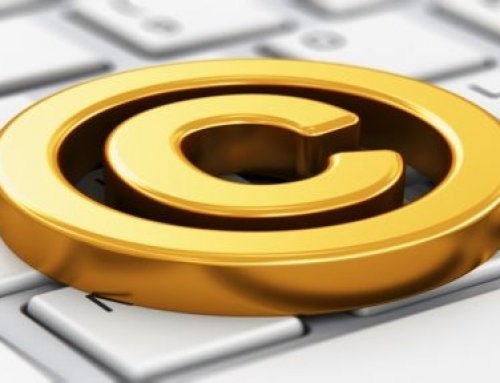Can Blog be Copyrighted:
The short answer is “yes.” Any ‘original work of authorship’ is subject to copyright protection the moment that it is “fixed in any tangible medium of expression.” For example, a love letter is instantaneously subject to copyright protection as it flows out beneath your fountain pen. Similarly, blogs readily qualify as copyrightable literary works (as long as they contain some of your own expression and not merely expression copied from others). On the other hand, a song that you spontaneously sing is not protected by statutory copyright until it is “fixed,” e.g., until you write it down or record it. {Many varieties of “works of authorship” are listed in Section 102 of the Copyright Act.} You can therefore accurately say that your blog entries are “copyrighted” as soon as you write them. (Storage on a server or hard drive qualifies as a form of “fixation.”)
Identification of Copyright:
It is entirely appropriate to display a standard copyright notice on your blog (the “c” in a circle, followed by the year of creation and your name), which puts the world on notice that you claim copyright ownership in your work.
Registration:
Often when people speak informally about “copyrighting” their work, they are actually talking about registering the copyright in their work. There is a $35 fee and you will need to submit a digital copy of the work you are registering. Registering a blog is a bit tricky because it is a work that is continuously added to and updated.
Registration of Online Work-
Under U.S. law, copyright protection subsists from the time the work is fixed in any tangible medium of expression from which it can be perceived, reproduced, or otherwise communicated, either directly or with the aid of a machine or device. Copyright registration is not mandatory, but it has important benefits. For general information about copyright, see Circular 1, Copyright Basics.
What the Registration of an Online Work Covers
For all online works other than computer programs and databases, the registration will extend only to the copyrightable content of the work as received in the Copyright Office and identified as the subject of the claim. The application for registration should exclude any material that has been previously registered or published or that is in the public domain. For published works, the registration should be limited to the content of the work asserted to be published on the date given on the application.
Revisions and Updates
Many works transmitted online, such as websites, are revised or updated frequently. Generally, copyrightable revisions to online works that are published on separate days must each be registered individually, with a separate application and filing fee (unless it meets the requirements in the following two sections). Registration of a revised version covers only the new or revised material added.
Databases
In some cases, a frequently updated online work may constitute an automated database. A group of updates, published or unpublished, to a database, covering up to a three-month period within the same calendar year, may be combined in a single registration. For more information about registering databases, request Circular 65, Copyright Registration for Automated Databases. All updates from a three-month period may be registered with a single application and filing fee.
Registering a Copyright with the U.S. Copyright Office
An application for copyright registration contains three essential elements: a completed application form, a nonrefundable filing fee, and a nonreturnable deposit—that is, a copy or copies of the work being registered and “deposited” with the Copyright Office. A copyright registration is effective on the date the Copyright Office receives all required elements in acceptable form.
STEPS-
Option 1: Online Registration
Online registration through the electronic Copyright Office (eCO) is the preferred way to register basic claims for literary works; visual arts works; performing arts works, including motion pictures; sound recordings; and single serials. Advantages of online filing include • a lower filing fee • fastest processing time • online status tracking • secure payment by credit or debit card, electronic check, or Copyright Office deposit account • the ability to upload certain categories of deposits directly into eCO as electronic files.
Option 2: Registration with Paper Forms
Paper versions of forms are available on the Copyright Office website, or staff will send them to you by postal mail upon request. Remember that online registration through eCO (see above) can be used for the types of applications identified in “Option 1” above.
Determining if Your Work Is Published or Unpublished-
The definition of “publication” in the U.S. copyright law does not specifically address online transmission.
Published works: If you determine that your work is published, give the complete date and nation of first publication on the application. For a revised version, the publication date should be the date the revised version was first published, not the date the original version first appeared online. For registration purposes, give a single nation of first publication, which may be the nation from which the work is uploaded.
Unpublished works: If you determine that your work is unpublished, leave the “date of publication” and “nation of publication” spaces on the application blank. Do not write “Internet,” “homepage,” or any other term in this space.
Effective Date of Registration
When the Copyright Office issues a registration certificate, it assigns as the effective date of registration the date it received all required elements—an application, a nonrefundable filing fee, and a nonreturnable deposit—in acceptable form, regardless of how long it took to process the application and mail the certificate. You do not have to receive your certificate before you publish or produce your work, nor do you need permission from the Copyright Office to place a copyright notice on your work.
Point to be noted:
- Again, keep in mind that copyright registration is not a prerequisite for copyright protection. Even if you have not registered your work before someone infringes it, you can still potentially recover actual damages from the infringer or the infringer’s profits attributable to the infringement.
- There are, however, two important benefits to be gained by registering your work early on. First, if and only if you have registered your work before the onset of an infringement, you can recover your reasonable attorneys’ fees in addition to damages, if you ultimately win a judgment against an infringer. Second, generally, if and only if you have registered your work before the onset of an infringement, you have the option of electing to pursue an award of “statutory damages”instead of actual damages or profits attributable to the infringement.





